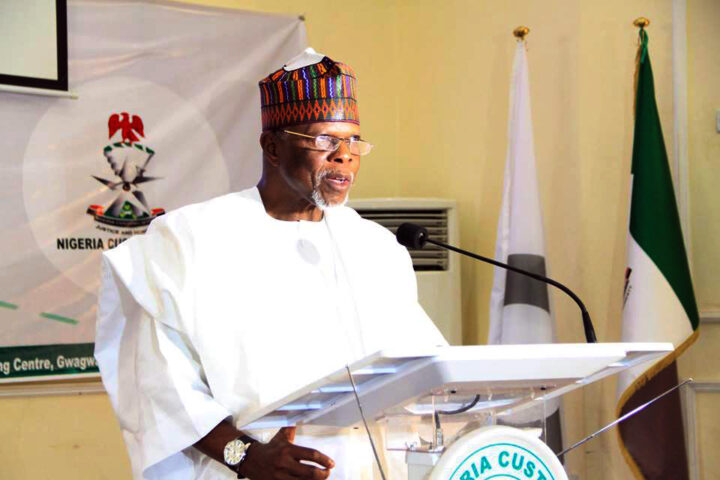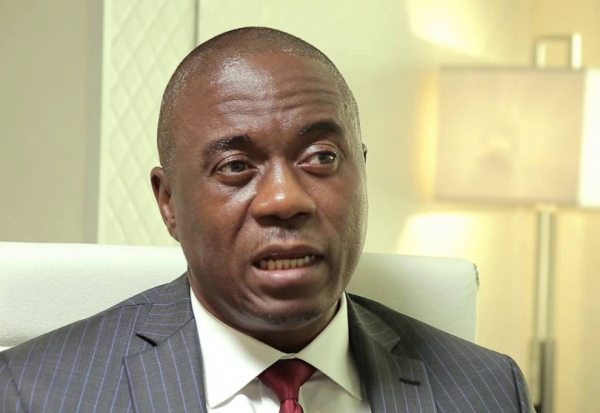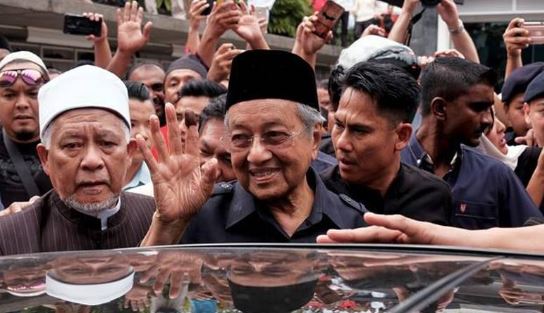Now, with ICT taken over by the private sector, we identified energy, transportation and water supply as major infrastructural needs to make 20 20 20 a reality. If South Africa, with a population less than one-third of Nigerian population, has a power generation of some 40,000MW and yet still only an industrialising country, Nigeria will need close to 100,000MW of power generating capacity to become a serious industrialising country. But with the existing power generation capacity, the four thermal units earlier embarked upon and the seven NIPP, if pursued vigorously, Nigeria was to have 10,000MW generating capacity by 2007/2008 and then move by leaps and bounds to some 20,000MW by 2015. That programme is feasibly put in the pipeline but it has to be driven to be achieved. As a people who are desirous of making rapid economic and social progress, we have no alternative. Talking of any alternative can only be an idle talk or borne out of ignorance.
Fortunately, revenue from oil had improved from 2003 and we have managed to keep some reserve to prevent the boon and burst of the past when we spent all when we had money and went flat when the oil price ebbed. After consultation with the Governors, the Chairmen of Local Governments and the National Assembly, it was agreed to finance NIPP from reserve of unallocated oil revenue since energy touches every life and everywhere. It was to be an investment contribution which is on the basis of revenue allocation formula and to be refunded when NIPP is privatised on the same basis of revenue allocation. At that time, everybody agreed and we moved to finance NIPP on that basis.
In every case, to the best of my knowledge, all contracts for NIPP were based on open-publicly-advised tender system except for the turbines where the four major producers in the world – GE, Siemens, Hitachi and Alshtom – were invited to submit tender. GE was the cheapest with the best terms all round but particularly including establishing a repair and maintenance centre in Nigeria. Turbines which were custom-produced will only be produced when there is assurance of payment in form of down payment or irrevocable letter of credit.
MOBILISATION FEE
Advertisement
To the best of my knowledge, the government policy was to pay contractors only 25% mobilisation fee. However, it is not the duty of the President to oversee such payment. You are well aware of those whose duty it is to pay. If a contractor, who has been paid mobilisation fee is not actively on site, it will be wise to find out what the problem of such contractor may be – violence in the Niger Delta, extortion of money by the so-called militant groups, unfriendly community, waiting for raining season to go, awaiting equipment from abroad or any other reason. If there is a contractor that has taken mobilisation fee or any fee for that matter and not performing, there is always the guarantee from his bank or insurance that can be called. For letters of credit, a contractor does not draw money until there is evidence of performance normally in form of shipping documents which are negotiated between the bank of the client and the bank of the supplier.
You may wish to know that any allegation that companies are not registered or that non-existing companies were paid are not matters for the President but for appropriate officers in the relevant ministries. If this ever happened, there would have been a big syndicate racket that should be broken and all concerned prosecuted because monies are paid by cheques or letters of credit. Companies will not have bank accounts opened for them without evidence of registration and other documents authenticated. If the Committee has such a case, please ensure prosecution without delay. Let me just say that international and multi-national companies like the suppliers of turbines do not necessarily need to be registered in Nigeria to carry out operations, directly asking for waiver if necessary or through their local representatives. I am, however, informed that the issue of unregistered companies has since been clarified and the Committee has received evidence of registration of all the 34 companies.
While looking for solution to our energy problem, I visited South Africa where they depend heavily on thermal plant based on coal, generating in total 40,000MW and planning to spend $21 billion in the next five years. We could not embark on coal generated thermal until we can produce coal locally and no private sector will be involved in coal or other solid mineral production unless there is assurance
Advertisement
or expectation of reasonable return on such investment backed by necessary law, regulation and survey. The solid mineral bill lasted two years in the National Assembly. And no investor could be persuaded to come to invest in solid mineral when there was no law in place. The law came in the last quarter of our Administration. Very serious attention can now be paid to thermal generation from coal. Meanwhile, we have taken to hydro to supplement thermal with Mambila and Zungeru and smaller potentials from where we can generate almost 4000MW.
There has been some allegation of waiver of due process. Let us all understand what is meant by due process. It is the rule or regulation put in place for systematic and orderly business of government. Normal due process for award of contract is advertisement or, in case of selective tendering, ensuring sufficient number to avoid collusion. Then the tender should be publicly opened, followed by analysis of the tender and award made on the recommendation by those who analyse. Our Administration set up a due process unit to ensure that another check is in place especially with local contractor to see whether prices could be further reduced and to issue a certificate to ensure that there is budget provision for the project, the contract or the supply. All NIPP projects went through due process to check on competence, prices, or cost and were issued with due process certificate but exempted from due process payment certificate since they were not projects on normal annual budget but on special provision from excess crude and the fund being available there was no need to cause any further delay in payment for such an urgent project where any delay will be costly in human discomfort and inadequate power supply to industries. The first set of invoices by contractors were delayed in due process office for almost two months – an unnecessary delay which was holding up progress.
Let me plead with the Committee again that where you have proven cases of fraud or corruption, please give details of the amount involved, the bank involved, the persons involved. Where it is corruption, the receiver and the giver. Not only should you make public such proven misconduct, hand the offender with necessary documents to EFCC and/or ICPC.
DOUBLE JEOPARDY
Advertisement
In all cases, in government, during our Administration, we pursued the best interest of Nigeria and we went to great lengths to ensure that the interest of Nigeria, Nigerians and the government is protected. As the head of that administration, I spared no public officer who committed any breach of public order, integrity and propriety, particularly fraud and corruption. No matter how high an official was, he was sanctioned for misbehaviour. In this respect, I lead by example. But if your Committee has anything to the contrary, bring it out here and now, to explain if explanation is necessary.
Now, after it is all said and done, the bottom line is that Nigerians need power and they need it now. Any delay is double jeopardy – there is loss to our economic and industrial growth and, every month that the contractors are wittingly or unwittingly prevented by whatever reason or excuse from embarking on their jobs, Nigeria will pay more. The hold-up and the delay that have attended the projects in the pipeline since May 2007 will, by my estimation, cause the nation not less than 25% more by the time the works are completed. There is the danger that some of the equipment, particularly the turbines that are now at the port and elsewhere in the country may suffer deterioration if not kept in a special storage facility. And they may have to be replaced or refurbished at a very high cost before they can be installed.
The point must be made and vigorously too that 20 20 20 will be a mirage without adequate power supply and adequate transportation. The private sector will have to be involved in helping to provide these either as contractors, suppliers or public-private partnership. We cannot criminalise them, antagonise them, disgrace them and expect to get the best support and cooperation out of them. Most of the contractors and suppliers are companies and organisations with tremendous reputation and most of their management and staff are men of honour and dignity. They deserve understanding and respect. Most of them, as far as I know, have carried out the task consciously and committedly. In all cases, there are officials or Committees who are supposed to monitor them.
What I am saying is that the legislature, whether in their legislative duties, their oversight functions or in their investigative duties, must realise they share responsibility for progress of the nation especially the economy. Let the Legislature help the Executive in its onerous task of moving the economy forward and in realising 20 20 20.
Advertisement
Theatrical or circus shows will provide fun and maybe hurt some people but the reality will remain. Let us do everything possible to urgently implement the projects in the pipeline to minimise the current agonies of the Nigerian public. One year is already lost, we cannot afford to lose another year without dire consequences in the coming years. Let us all be progressively positive and cumulatively constructive to move Nigeria forward. Let us move away from ‘Pull Him Down (Phd)’ syndrome.
Advertisement
Add a comment






